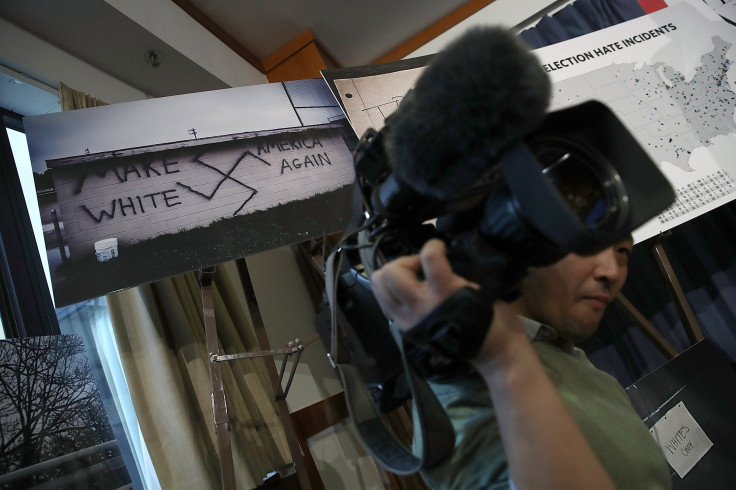Hate Crimes In The US: 48 Jewish Community Centers Received Bomb Threats In January As Part Of ‘Telephone Terrorism’

A total of 48 Jewish Community Centers in 27 states and one Canadian province received close to 60 bomb threats in January alone, according to the Jewish Community Center Association of North America. The figures, released in a CNN report Thursday, are just the latest evidence of the sharp rise in anti-Semitic violence in the wake of the 2016 presidential election campaign and the victory of Donald Trump.
Most of the 48 threats were made in three rapid waves, on Jan. 9, 18 and 31, with some centers receiving multiple threats. While no bombs were found, the FBI was investigating the incidents as hate crimes, a number of JCC sources told CNN.
Along with the FBI, the Justice Department’s Civil Rights Division are “investigating possible civil rights violations in connections with threats to Jewish Community Centers across the country,” read a statement from the FBI.
The term “telephone terrorism” has been used online to describe the plethora of incidents, which have included a caller claiming that a C-4 bomb has been placed in a JCC and that “a large number of Jews are going to be slaughtered."
Asked during a press conference with Israeli Prime Minister Benjamin Netanyahu Wednesday about the spike in anti-Semitic violence since he began his campaign for president, Trump switched the conversation to the scale of his victory in the election. However, the same day the Southern Poverty Law Center revealed there had been an increase in hate groups in the United States in 2016, with more than half of them anti-Semitic in nature.
The civil rights advocacy organization laid the blame squarely at the door of Trump and the man he has made his chief strategist, Steve Bannon, former publisher of self-described “platform for the alt-right,” Breitbart News.
“The country saw a resurgence of white nationalism that imperils the racial progress we’ve made, along with the rise of a president whose policies reflect the values of white nationalists,” Mark Potok, senior fellow at the Southern Poverty Law Center and author of the report, said. “In Steve Bannon, these extremists think they finally have an ally who has the president's ear.”
© Copyright IBTimes 2025. All rights reserved.





















